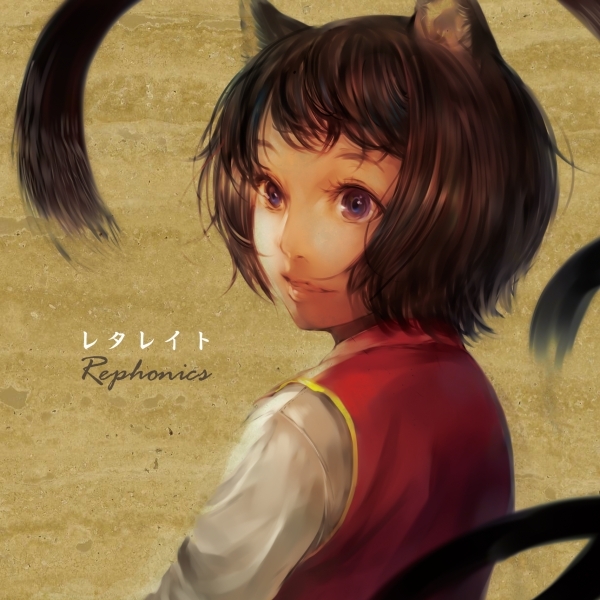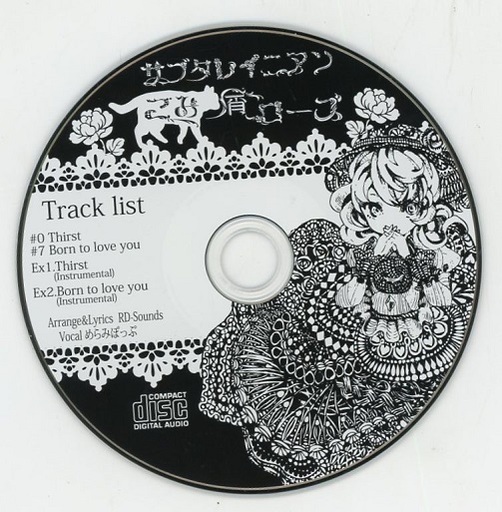| 棺揺らせ |
轻摇棺椁 |
Sway the coffin. |
| その出で立ちその者に伝わるよに |
望能传达给踏上旅途之人 |
So that it can be passed on to those who begin their journey. |
| |
|
|
| 鈴鳴らせ |
鸣铃作响 |
Ring the bell. |
| その道ち行きその者に伝えるよに |
望能传达给行于路上之人 |
So that it can be passed on to those who walk their roads. |
| |
|
|
| これなるは野辺の送り |
如此这般 即是送殡之仪 |
This is how the funeral goes. |
| 諸人人ごと見やれば |
扼腕送行者 比比皆是 |
Many people saw them off. |
| |
|
|
| 手を合わせ |
双手合十 |
Put your palms together. |
| 散る花のその名残を惜しむ間まで |
看那散花零零 叫人戚戚不舍 |
Until the scattering flowers make you reluctant for parting. |
| |
|
|
| 頭垂れ |
垂头不语 |
Bow your heads. |
| その影長く長く空の暮れゆくまで |
直至沉沉暮色之下 哀影幢幢 |
Until your shadows are stretched long by twilight. |
| |
|
|
| 風吹けば死出の山路 |
清风拂掠 通往冥界之山路 何其险恶 |
The wind blows, revealing a dangerous mountain path leading to the other world. |
| 消ゆる雲の行方知らず |
残云消逝 其去向 无人可知 |
The clouds disappear, and no-one knows to where. |
| |
|
|
| かくも 痛きかな かくも 哀しきかな |
嗟乎痛哉 呜呼哀哉 |
How painful. How sorrowful. |
| なれど 死を知らず 弔うなくば 明日知れぬは皆々同じ |
然若不往弔之 又怎知殒命之重 不知明日其死者 众生皆然 |
But one shall not know death if one does not mourn. Death may come to anyone tomorrow. |
| |
|
|
| などなどか忘れ申さん 命あるものなれば—— |
尔既性命尚存 便绝不忘此训—— |
You shall not forget this, if you are still of the living —— |
| |
|
|
| やれ歌えあれらの歌 その大きな響きそのままに |
来唱他们的歌儿吧 合着那回响的旋律 |
Hey let’s sing their song! Sing along to that loud echoing sounds. |
| それ歌えあれらの歌 耳をすませば聞こえてくる |
快唱他们的歌儿吧 仔细听的话就能听到 |
C’mon let’s sing their song! If you listen closely, you can hear it. |
| |
|
|
| その意味は誰も知らない どうせ意味など意味も無い |
没人知道那是什么意义 反正“意义”本来就没有意义 |
Nobody knows its meaning, anyway even the word meaning doesn’t mean anything. |
| |
|
|
| ただただ興味のあること ただただ真似していればいい |
我们只喜欢有趣的东西 只喜欢模仿他们 |
We only care for interesting things, we just want to imitate them. |
| いつだってどこか何か 楽しげなことを探してる |
不论何时何地 我们都在寻找好玩的东西 |
We search for fun things whenever and wherever we go. |
| |
|
|
| 耳のこる不思議な言葉 声あわせ歌えばたのし |
耳边还残留着那不可思议的话语 要是一起唱的话一定很好玩 |
Those curious words still remain in our ears, it’ll be fun if we sing them together! |
| |
|
|
| かくも いたきかな! かくも かなしきかな! |
嗟乎痛哉!呜呼哀哉! |
How painful! How sorrowful! |
| なれど しをしらず とむらうなくば あすしれぬはみなみなおなじ |
然若不往弔之 又怎知殒命之重 不知明日其死者 众生皆然 |
But one shall not know death if one does not mourn. Death may come to anyone tomorrow. |
| などなどかわすれもうさん いのちあるものなれば! |
尔既性命尚存 便绝不忘此训! |
You shall not forget this, if you are still of the living! |
| |
|
|
| その涙 その歌う所作 |
那泪水 那歌唱的模样 |
Those tears, those singing acts, |
| その意味も 何も知らずに |
那些意义 他们一概不知 |
and their meaning, are all foreign to them. |
| そも死を知らぬものたち |
本来他们就不知死为何物 |
They do not know what death is to begin with. |
| |
|
|
| 誰もかも聞かれぬ歌 かなで奉りて |
奏响并奉上 谁人都无法听闻的歌曲 |
They play a song that nobody hears. |
| 弔うものなきまま 歌うは妖精 |
纵然没有需要吊唁的人 妖精们也仍歌唱着 |
With no-one to mourn for, the fairies sing. |
| |
|
|
| そして 縁知らず埋もるものも 縁知られなお消ゆるものも |
随后 不曾识缘而葬身者 纵知缘却也消逝者 |
And then, those who are buried without a connection to the world, and those who disappear even with connections. |
| いつの日か 遍く聞けよ あれ歌う屍の歌 |
终有一天 让所有人都听到 他们所唱的死尸之歌 |
Let them all hear the fairies’ Song of Corpse, someday. |
| |
|
|
| しをしらず とむらうなくば あすしれぬはみなみなおなじ |
若不往弔之 又怎知殒命之重 不知明日其死者 众生皆然 |
One shall not know death if one does not mourn. Death may come to anyone tomorrow. |
| などなどかわすれもうさん いのちあるものなれば・・・ |
尔既性命尚存 便绝不忘此训… |
You shall not forget this, if you are still of the living… |







